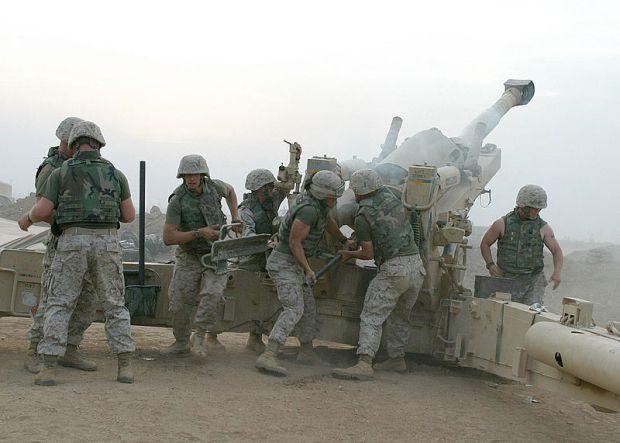Iraq — 10 Years Later: ‘What We Did Wrong’
A U.S. Marine Corps medium howitzer in action near Fallujah in 2004. (Photo: Wiki Commons – L/Cpl Daniel J. Klein USMC)
The war in Iraq did not go according to plan.
It was hoped that a quick victory would be met with the help and gratitude of a liberated people; a move that could spark a democratic awakening throughout the Middle East.
Instead, a stubborn insurgency was born, which morphed into a vicious sectarian conflict.
Steve Bucci was at the Pentagon at the time of the invasion, as military assistant to then-Defense Secretary, Donald Rumsfeld.
“To be honest with you, the plans were at best inadequate,” he says. “There had not been adequate preparation for the idea of having to then help govern the country. We just did not think we were going to need to do that.”
Bucci says the Pentagon thought the Iraqi people were sophisticated enough to take the reins early on, and that Saddam Hussein’s tyranny had dispelled sectarian tensions.
“As it turned out, it didn’t really work that way,” Bucci says. “The infrastructure both physically and politically was far more fragile than we realized. And as it started to break down, and then that gave rise to the insurgency. And that was not an expected outcome.”
